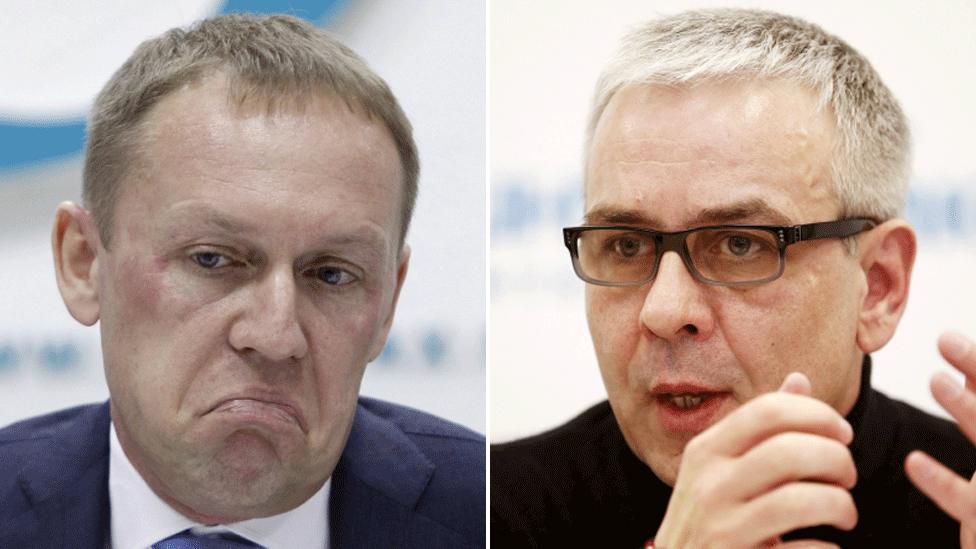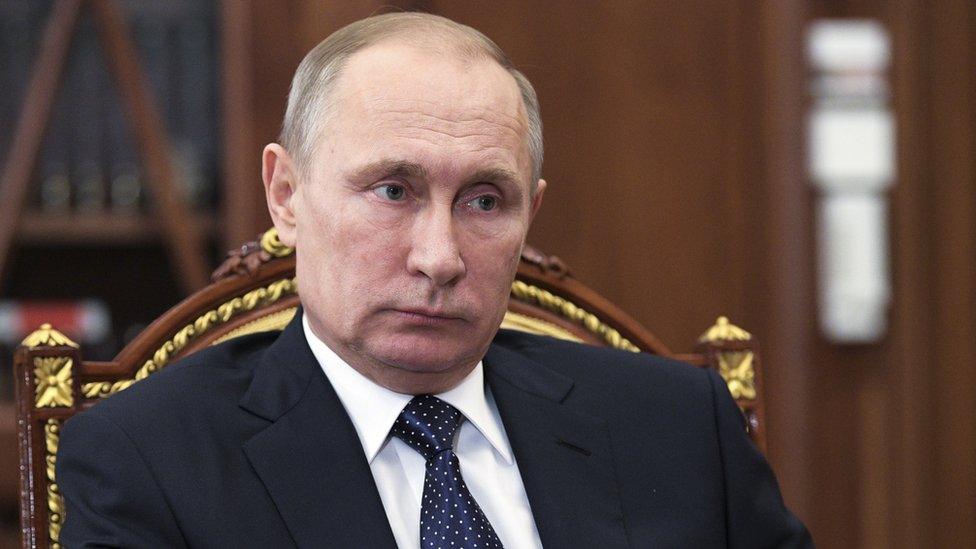US sanctions five prominent Russians including Litvinenko suspects
- Published

Andrei Lugovoi and Dmitry Kovtun are wanted in the UK for the murder of Alexander Litvinenko
The Obama administration has blacklisted five prominent Russians, just 11 days before he leaves office.
Chief federal investigator Alexander Bastrykin and two men wanted in the UK for the murder of Russian dissident Alexander Litvinenko are among them.
The sanctions come amid worsening ties, including claims Russia ran a cyber campaign to influence the US election.
President-elect Donald Trump is seeking to restore closer relations with Russia.
US officials say the sanctions are not related to the hacking but come under a 2012 law designed to punish human rights violators.
Diplomatic spat goes undiplomatic
Where Trump stands on key issues
The move could be the last visible act against Russia by the outgoing administration, correspondents say.

Mr Putin has not responded to recent US actions against Russia
Under the act named after Russian tax fraud whistleblower Sergey Magnitsky, who died in a Moscow prison in 2009, people on the list have their US assets blocked and are banned from travelling to the US.
It originally targeted officials implicated in Magnitsky's death but has since been broadened to cover other human rights cases.
The five men to be blacklisted are:
Alexander Bastrykin, a close aide to President Vladimir Putin and head of the federal investigative agency, who has led campaigns against domestic dissidents and foreign NGOs working in Russia. US officials say he was complicit in the Magnitsky case
Gennady Plaksin, former head of the Universal Savings Bank, and Stanislav Gordiyevsky, former investigative agency official. Both are said to be involved in covering up Magnitsky's death
Andrei Lugovoi and Dmitry Kovtun, the main suspects in the poisoning of former KGB agent and London exile Alexander Litvinenko in 2006
Litvinenko died after drinking tea laced with a rare radioactive substance at a hotel in London.
Both Mr Lugovoi and Mr Kovtun deny any involvement in the killing, and efforts to extradite the men to the UK have failed.
Last month, Washington expelled 35 Russian diplomats following allegations by US intelligence services that Russia had ordered the hacking of Democratic Party emails to damage Mr Trump's Democrat rival for the presidency, Hillary Clinton.
Russia denies the allegations and on Monday described them as a witch-hunt, but has so far not responded to the expulsions.
But after the 35 were thrown out Russia declined to respond in kind, with Russian President Vladimir Putin saying his country would not stoop to "irresponsible diplomacy".
Mr Trump, meanwhile, is said to have accepted the findings of the report but has declined to single out Russia as the source of the hacking.